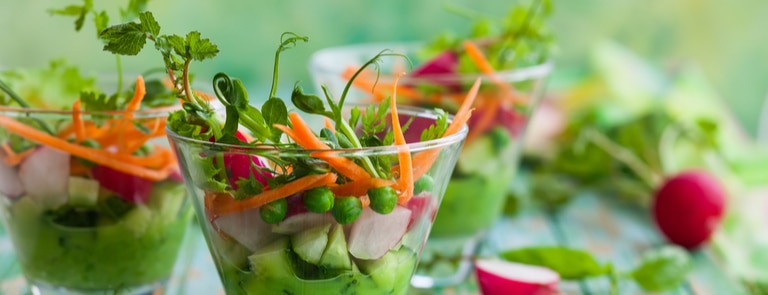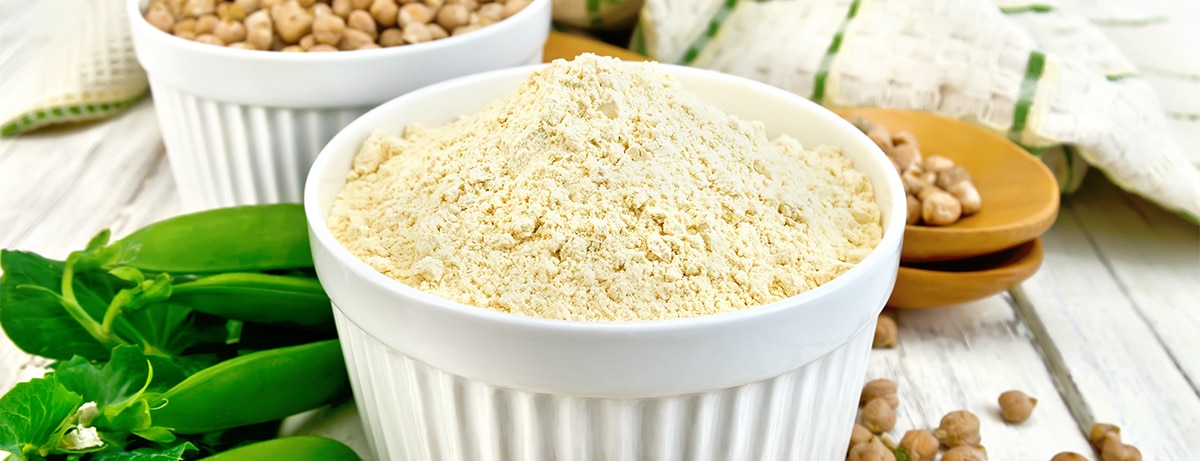10% off £35
Raw food diet – best way to lose weight?

The raw food diet has become very popular in recent years, as a diet which can help you to lose weight as well as having other benefits for your overall health.
Similar to veganism, the diet is – as the name suggests - mostly made up of raw fruit and vegetables.
But is the raw food diet really a good way to lose weight?
What is the raw food diet?
The raw food diet is a diet that involves eating mainly raw and unprocessed foods.
Food on the diet must not be heated above 48 degrees Celsius or refined, pasteurised, treating with pesticides or processed in any other way.1
People that follow the diet should ensure that raw foods make up at least three quarters of their diets.
What can you eat on the raw food diet?
The raw food diet is mainly plant based and includes fresh fruits, raw vegetables, nuts and seeds, grains and legumes, dried fruits, nut milks, nut butters and fermented foods such as sauerkraut.2
Some people also include raw eggs and dairy or raw fish and meat in addition to the fruits, vegetables, nuts and seeds.
Can the raw food diet help you lose weight?
Although weight loss is not always the main motivation behind following the raw food diet, it can help you to lose weight.
Raw, plant-based foods are usually lower in calories than some of the other food groups and are easier for the body to digest.
They are also packed with fibre which keeps you feeling fuller for longer, helping to avoid unhealthy snacking habits or overeating at mealtimes.3
The fibre in the raw food diet will also help to prevent constipation and help to support normal digestion, helping you to get rid of excess water weight.
Other benefits of the raw food diet
As well as weight loss, there are a few other benefits to following a raw food diet.
This diet is high in vitamins and minerals such as potassium, magnesium, folate, fibre, vitamin A and rich in antioxidants, thanks to the natural nutritional profile of fruits and vegetables.4
It may also help you to become more inventive when it comes to meal times, since you will be unable to eat your usual meals and so you will need to come up with alternatives and research some raw food recipes.
If you are following a raw vegan diet, then there are also benefits for the planet. 58% of the world’s emissions come from animal products and so a vegan diet helps to reduce this.5
Risks of the raw food diet
As well as the benefits, there are also some risks which are associated with following the raw food diet.
A raw food diet may be low in certain essential nutrients such as protein, iron, calcium and vitamin B12, as a lot of these usually come from meat, fish and dairy products.6
There are plant-based sources of these and so you should plan your meals accordingly to ensure that you are getting enough of these, or you can take a dietary supplement.
This diet may also be impractical and difficult to follow for a long period of time. It can take a lot of time and effort to ensure that your meals are balanced and it may be costly to buy all raw food.
The raw food diet is an effective way to lose weight if you are planning to continue with the diet long term. However, if you are looking for a quick fix, it is impractical as, once you go back to eating non-raw foods, you may just put the weight you have lost back on.
So, is the raw food diet the best way to lose weight?
The raw food diet is an effective way of losing weight, however you need to be aware of the risks involved that we have outlined above.
If you want to try out a raw diet, ensure that you have a wide variety of foods available, as well as adding some supplements to your diet, to make sure that your body is getting all of the nutrients that it needs to function healthily.
The best way to lose weight and maintain weight loss is to eat a healthy balanced diet which is rich in nutrients as well as living an active lifestyle and ensuring that you are getting enough exercise each week.
Last updated: 26 April 2021
- https://www.healthline.com/nutrition/raw-food-diet#TOC_TITLE_HDR_2
- https://www.healthline.com/nutrition/raw-food-diet#TOC_TITLE_HDR_3
- https://www.medicalnewstoday.com/articles/7381#benefits
- https://www.verywellfit.com/food-to-eat-on-the-raw-food-diet-89921
- https://veggieguide.co.uk/is-the-vegan-diet-as-sustainable-as-we-think/
- https://www.webmd.com/diet/a-z/raw-foods-diet














